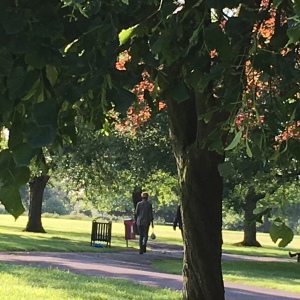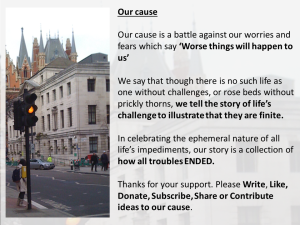18 Park Road Aba 3
The aunties who lived in the next yard now had children, and some of the aunties had their younger siblings from the village come to live with them. There were more children, and play was more fun. The aunties now went out more in the day, and returned later in the evenings. The children played in their groups. They were well mannered and well behaved. In some sort of comical ritualistic fervency, they hauled timely greetings at any passing adults. These were totally not unsolicited but as elders poured libation, knowing it’s the right thing, they religiously hunted the ancestors with these necessities. Good morning, good afternoon, good evening, the children will say to every passing adult. The adults always also promptly replied. Good morning, good afternoon, good evening, and sometimes they may add, be careful children, please play fair, please play well. Sometimes if the children observed the adult was in good moods, they may quickly add “Happy Survival!” The adult, unprepared but caught in the moment, will equally reply “Happy Survival!” Both parties will then burst a few suppressed surge of laughter.
Happy Survival! Adults usually exchanged these kinds of greetings among themselves in those days. Children listened, and often heard more than the words meant. Children giggled secretly, sometimes hilariously, sometimes at the backyard, they would stage a drama, mimicking peculiar adults public behaviours and would laugh out so loud at them.
The children carried the feel of this dramas over them. All day and sometimes with coded postures, they communicated among themselves. They used words with layered meanings. They giggled, laughed and sometimes were carried away even when they were amongst their parents or other adults.
These adults have survived the peace with their bare hands, the same way they had fought the war. It was difficult on them. Everything has been difficult on them. They have moved on and the nuances of the war’s various cranial, and dishevelling elements, with its compressed and brewed hangovers, have constantly left them with an overburdening aftertaste, sully mouth and an indelible debris of coloured eyes and bad behaviour. They are all surviving without intervention, counselling or outside assistance. In their villages, in their traditional institutions and various ways of knowing. They were conditioned to believe that God would be on their side when they are good. In the war, they knew and saw God on their side. They saw him as they were killed and plundered in war.
Now, if there is anything else to know, they want to know, whether he is not defeated now? How can they live without a God? As fallen hero, will he rise to Almighty again?
Those who spat up into the heavens, are yet to see the sputum all over their faces. It is really hard, it is extremely difficult to reconcile with your Chi.
On the street, children beamed with admiration and wonder on their faces, as they looked and argued about the colours on the walls of the houses, the motifs and signs painted on them. On others, you a saw a spring on their steps and energy as they darted across the street to touch things, run up the refuse dumps, and come back out again with finds and satisfaction.
From some houses, people looked at you and all the time, you saw them along with the houses and colours, or sometimes the houses as their backdrops. The houses had numbers on them. You can actually learn your numbers by following the houses down to the end of the street. If you counted on one side of the street alone, you could be calling only the odd numbers or the even numbers. If you looked on both sides, you would be calling them in serial order.
You could also go into all the stationary vehicles riddled with holes, pushed to the sidewalks along the street. You can sit and turn their steering wheels, step on their pedals or bounce on their seats while searching and calling out the house numbers. You did not see the empty bullets and the live ones, with pointed ends, scattered on the floor of the cars. You could not touch them or take them home for fear of what the adults could do to you. You did not also see the shelling and mortar cases stuck on wooden garage doors or the running roofing panels abruptly interrupted. No, in your mind, that red roof panel ran to its end and its ultimate completion was inherent.
The first house which usually starts with the odd number and the next one with the even number will stand face to face across the street. One could be a bungalow and the other a two story building with an elaborate balcony on each flour and several doors demarcated by double or single windows. On some houses, the numbers stood on top of the street name, and on some, it stood in front of it and on some, it was the numbers alone.
Children in the yards giggled and laughed a lot those days. Children did not have television programs nor did families have television sets. But they giggled and laughed a lot in those days. They saw enough laughter and had a lot of it, as they came to the front of the yard and looked into the street. Different acts came along. Some sang. Some showcased magical acts. Some flexed muscles and pulled stationary cars. Some were not former soldiers. None begged for alms. Others showed their war injuries and scars. Some told interesting stories, very long ones. Some did it for a shade, a cup of water, understanding and a long afternoon together. They temporarily suspended disbelief, and strode towards the apparition that beckoned them. They momentarily achieved closure and were war heroes returning to the applause of community and the embrace of family. Over new friends, new families and another place, other than the lone place, where they had slept the night before, they had reunited with part of their family. Happy Survival!
Then there was this uncle who comes along, whose peculiar nuance of the war’s various cranial and dishevelling elements, with compressed and brewed hangover, was called Artillery Shock. This uncle could not scrap the surface of his tongue, even when he was also constantly left with an overburdening aftertaste, sully mouth and an indelible debris coloured eyes and bad behaviour. Under the hot sun, along the street, he ran in vigilance. In peace time, he still ran in short steps, turning his head from left to right and back. He refused to speak, as he was not allowed to talk or make noise. When he ran up to you, he gazed demandingly and piercingly at your face. He looked to snatch the answer from your soul, and if you were unresponsive, he moved on. He ate whatever he had hurriedly and gave you what he did not eat, while still running or hopping. He never stopped. He never came into pastor’s place. He could not stop to come into pastor’s place and he did not have any of his smokes.
The evenings have eventual come. Some children in the yard are wiping the traces of sweat marks off their faces. Some have run quickly back into the rooms, flip the curtains, take a quick shot to see if they made the beds and everything is tidy. One is hurriedly washing a pile of dirty dishes and one is washing and hanging some wet clothes.
The aunties were returning from work. In some sort of comical ritualistic fervency, the children are hauling greetings at the aunties and other adults returning from work. Good evening, good evening, good evening. The aunties and other adults always also promptly replied. Good evening, good evening, good evening, and sometimes they may add, did you sweep the room? Did you make the bed? Did you wash the plates? Did you wash the clothes? One who was hurriedly hanging wet clothes, could not find any explaining why they were still wet and dripping water.
Sometimes if the children observed the adult was in good moods, they may quickly add “Happy Survival!” The adult, unprepared but caught in the moment, will equally reply “Happy Survival!” Both parties will then burst a few suppressed surge of laughter and giggles as the evening sun sets the dusk.
______________________________________________________________________
Leonard Chintua-Chigbu
Listening and Creative Communication Artist
BA Fine Art (Painting) University of Benin 1986










